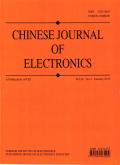基于直流-直流转换器负载瞬态检测的单事件效应辐射加固设计方法
IF 1.6
4区 计算机科学
Q3 ENGINEERING, ELECTRICAL & ELECTRONIC
引用次数: 0
摘要
针对负载电流变化对单事件瞬态的影响,深入研究了 DC-DC 转换器的单事件瞬态和负载瞬态之间的本质区别。提出了一种基于负载瞬态检测的加固电路。该电路能及时检测负载瞬态信息,并输出控制信号来控制单事件加固电路,从而实现动态条件下系统瞬态特性的改善。基于 180 纳米双极-CMOS-DMOS(BCD)工艺,完成了升压转换器的设计和物理验证。实验结果表明,输入电压范围为 2.9-4.5 V,输出电压范围为 5.8-7.9 V,负载电流为 0-55 mA。在负载瞬态期间,负载检测电路及时关闭加固电路,避免了系统振荡,拓宽了加固电路的动态范围。在单次瞬态下,系统的输出电压波动不超过最大纹波电压,单次瞬态抑制能力达到86%以上,系统可以很好地工作,线性能量传递约为100 \text{MeV}\cdot \text{cm}^{2}/\text{mg}$。本文章由计算机程序翻译,如有差异,请以英文原文为准。
Method of Single Event Effects Radiation Hardened Design for DC-DC Converter Based Load Transient Detection
Aiming at the impact of load current change on single-event transient, the essential difference between single-event transient and load transient of DC-DC converter is deeply studied. A hardened circuit based on load transient detection is proposed. The circuit detects the load transient information in time and outputs a control signal to control the single event hardened circuit, thereby realizing the improvement of the transient characteristics of the system under dynamic conditions. Based on the 180 nm bipolar-CMOS-DMOS (BCD) process, the design and physical verification of a boost converter are completed. The experimental results show that the input voltage range is 2.9-4.5 V, the output voltage range is 5.8-7.9 V, and the load current is 0–55 mA. During load transients, the load detection circuit turns off the hardened circuit in time, avoiding system oscillation and widening the dynamic range of the hardening circuit. Under the single-event transient, the output voltage fluctuation of the system does not exceed the maximum ripple voltage, and the single-event transient suppression ability reaches more than 86%, the system can work well with linear energy transfer of about
$100\ \text{MeV}\cdot \text{cm}^{2}/\text{mg}$
.
求助全文
通过发布文献求助,成功后即可免费获取论文全文。
去求助
来源期刊

Chinese Journal of Electronics
工程技术-工程:电子与电气
CiteScore
3.70
自引率
16.70%
发文量
342
审稿时长
12.0 months
期刊介绍:
CJE focuses on the emerging fields of electronics, publishing innovative and transformative research papers. Most of the papers published in CJE are from universities and research institutes, presenting their innovative research results. Both theoretical and practical contributions are encouraged, and original research papers reporting novel solutions to the hot topics in electronics are strongly recommended.
 求助内容:
求助内容: 应助结果提醒方式:
应助结果提醒方式:


